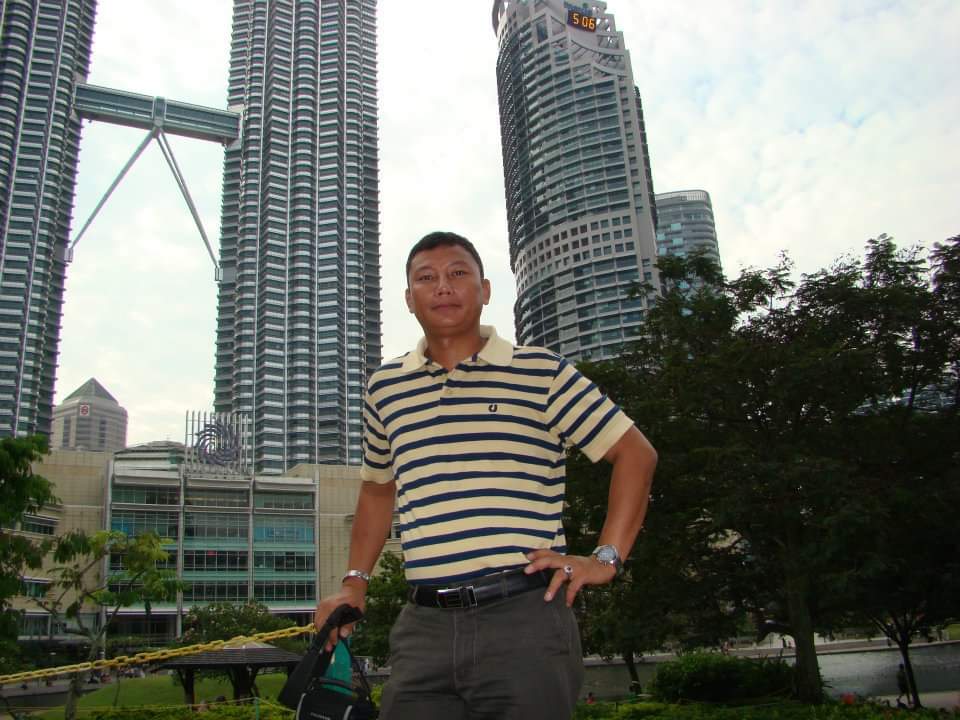Sons of their fathers
Human history is woven in stories of migration for work and livelihood. The trend continues to be a legacy for most Nepali men, who have migrated for work to India, Burma and beyond for centuries, working odd jobs, or defending other countries.

The more recent phenomenon in the past two decades is the outflow of workers to the Gulf and Malaysia, who battle challenges starting from agents at home to difficult weather conditions and foreign employers. In 2018-19, the government issued 236,208 permits for overseas work, and it is estimated that at least 4 million Nepalis at any given time are working abroad.
Khushiram Gurung, Sultan Tika and Ram from different regions of Nepal, have spent a large part of their lives toiling in foreign countries, while their hearts stayed back home. Now, their children are following their fathers’ footsteps in this inter-generational trend.

Khushiram Gurung has been working in Bahrain as a security guard since 2010.
He was first introduced to Bahrain in 2003, when he was a 15-year-old boy in Lamjung. His father, an Indian Army returnee, was waiting to hear from a Kathmandu-based recruiter regarding a security guard job in Malaysia. But the agent came back with a possible opportunity in Bahrain instead.
The family had never heard of Bahrain, but after learning that the salary would be over Rs30,000 per month, they said yes. In the next few days, Khushiram’s father arranged Rs100,000 via informal loans, and left for Bahrain.
Five years later, Khushiram’s brother joined him in Bahrain. After 7 years, it was Khushiram. Having grown up without his father around, it was in Bahrain that he spent more time with him.

“When we were growing up and my father was away in India, we didn’t know when he would return. My siblings and I would wake up some days and he would just be sitting in the kitchen, having arrived late in the previous night.”
When his father left for Bahrain, his presence became the letters that arrived at great intervals. “We used to go to the Hulak post office to see if there was a letter. The day the letters arrived, we would run home from school at around 4PM and wait for my mother to return from the fields. But once she was back, my siblings and I would sit around and my elder brother would read out the letter,” recalls Khushiram.
By 2012, with three family members in Bahrain, finances had improved and they were building a house in Kathmandu. But their lives came crashing when his mother was diagnosed with cancer.
“The ones left behind rarely get the attention and credit they deserve for keeping families intact. We are viewed as the providers, but to me, it was my mother who was the real leader of our family,” says Khushiram.
The family gave the mother the treatment they could afford, but there came a time when the doctors said nothing more could be done. Khushiram and his brother decided to send their father home. “We had to convince our father it was time he left, without telling him what the doctors had said. He agreed. We cried.”
The two were able to spend a few months together before she passed. “But we were not able to spend time with our mother even in her last days. That is the dilemma of foreign employment. Between our duty hours and the news of our mother’s cancer, much remains a blur,” he says.

Khushiram, now a father of a six-year-old boy, hopes that his son will not have to opt for foreign employment. “While I want him to stay in Nepal, our politicians, with their self-interest and cronyism, will likely chase my son abroad just like they did my father, brother and I."
***
Sultan Tika left Gulmi for Malaysia in 1991. He used his connections to arrange a visit visa as there were no work permits, and Nepalis went via Thailand. “I went to Malaysia because I had been told that there is an option for citizenship if you stay there for a few years, only to realise it wasn’t true,” Sultan recalls.

The term ‘setting’ where transnational networks operated were already a thing then. He had to pay Rs80,000 to the agents. “For someone who had barely seen 500 rupee notes, this amount was really large. At that time, you could buy 1 बिघा (0.4 hectare) land at Rs50,000.” Sultan was paid Rs240 a day to do agricultural work.
The reluctance to hire foreign workers in Malaysia was as real then as they are now. Sectors like agriculture were facing shortages, however, and without legal pathways, illegal options were the only route.
Sultan says Nepalis started coming “in droves” to Malaysia from 2001, when the government introduced work permits for foreign workers, first for agriculture workers then for security guards.
As a veteran migrant worker in the agriculture sector, Sultan leased land and started his own initiative in Penang. He also became the go-to person for many Nepalis who had escaped their abusive employers or were seeking work. “For many, it was a transit job so they could earn enough to buy their tickets home,” he says.
In 2017, Sultan decided to pack up and come home. He has set up an agriculture farm in Gulmi, where he is raising 90 goats and has set up a greenhouse for vegetables farming.


Sultan Tika in his home village in Gulmi.
“When I went to Malaysia in 1991, it felt like Nepal and Malaysia were similar. By the time I left, Malaysia had advanced so much,” he says now. But he is optimistic about the opportunities promised by mechanised agriculture in Nepal, with the right incentives and policies in place.
****
Ram first went abroad for work in 1998.
“Everyone said Arab is the place to be, so I too wanted to go,” he says. The names Qatar, Saudi Arabia and Dubai sounded familiar but it did not matter to him where he landed up as long as he could leave Nepal.
Ram was charged Rs55,000 for a security job in Dubai. There was not much documentation and process in those days. There were not many Nepalis in Dubai in 1998 but it was exciting to bump into them and ask how long they had been there.
“If they said 4 or 5 years, I would feel a mixture of shock and pity for them. The idea of being in a foreign country for so long was new to me,” he says. “Little did I know that I would still be here in 2020.”
In Ram’s memory, Dubai almost looked like Nepal when he first arrived. “There were no tall buildings. Even the airport was small and dingy. Look at this place now. Dubai has changed a lot, but I have not changed at all.”
“Back then, a 30 dirham phone card lasted 3 minutes. I used to use one to talk to the shopkeeper with the phone to arrange the time for the call. And another one to talk to my family at the pre-arranged time. I would make up my mind in advance about the things I wanted to say in those three minutes. The rest went in the letter,” he recalls.
Working as a security guard everyday for two decades have been a repetition of the previous day for Ram. “No career progression. No change in routine. Some clever Nepali guards become group leaders, but the rest of us are always security officers.”
Every year, he spends over 4,000 hours guarding either private residences or commercial buildings. “I usually get the 12-hour night shifts from 5PM to 5AM. It is difficult to feel rested when you sleep during the day. And it takes a toll on your health.”
With low incomes, saving is a challenge. And there are always new expenses. There’s children’s education and bigger investments like land and house. “Then it is your children’s wedding. And your parents’ health costs. Just when you think you are done some other expense shows up, and you keep postponing your return home.”
Ram’s elder daughter got married recently and he could not be home. “Remittances helped me pay for my daughter’s wedding. But my job did not let me go back to attend it.”
Now in his 50s, Ram says that unlike the lyrics to the song Saili that says, “we will return home at 40”, he is late by a decade. “My visa expires in 18 months. I think I will now head home for good. It is time.”

writer




